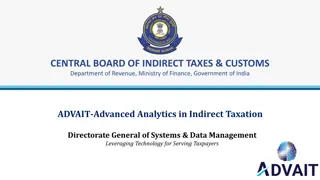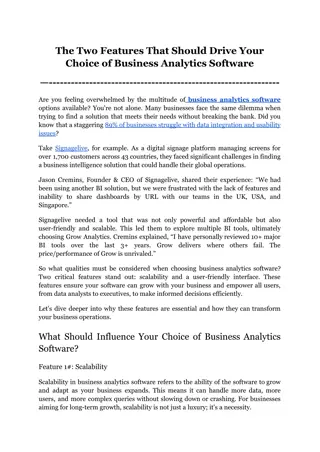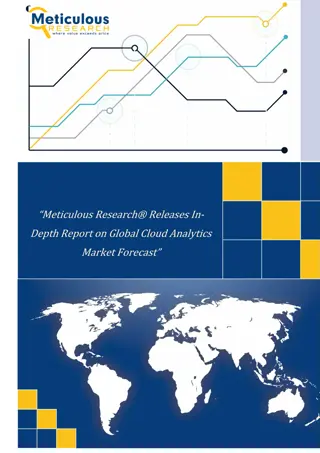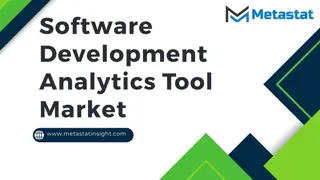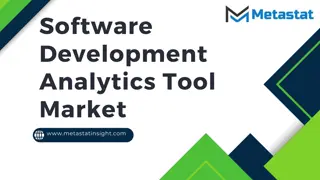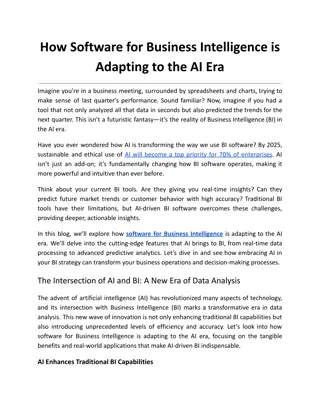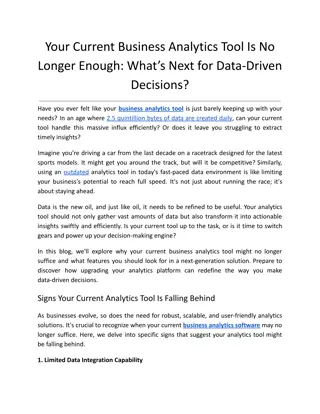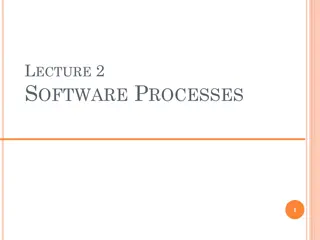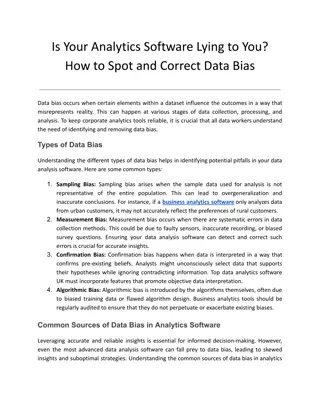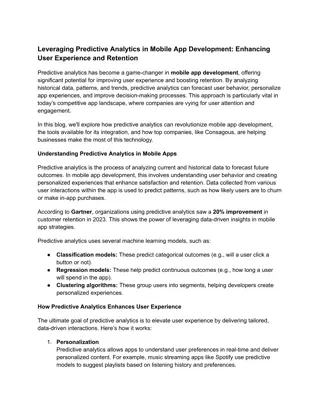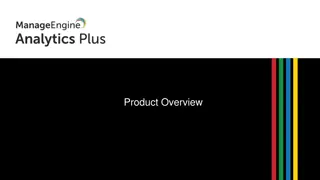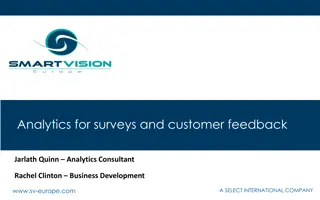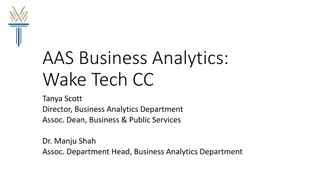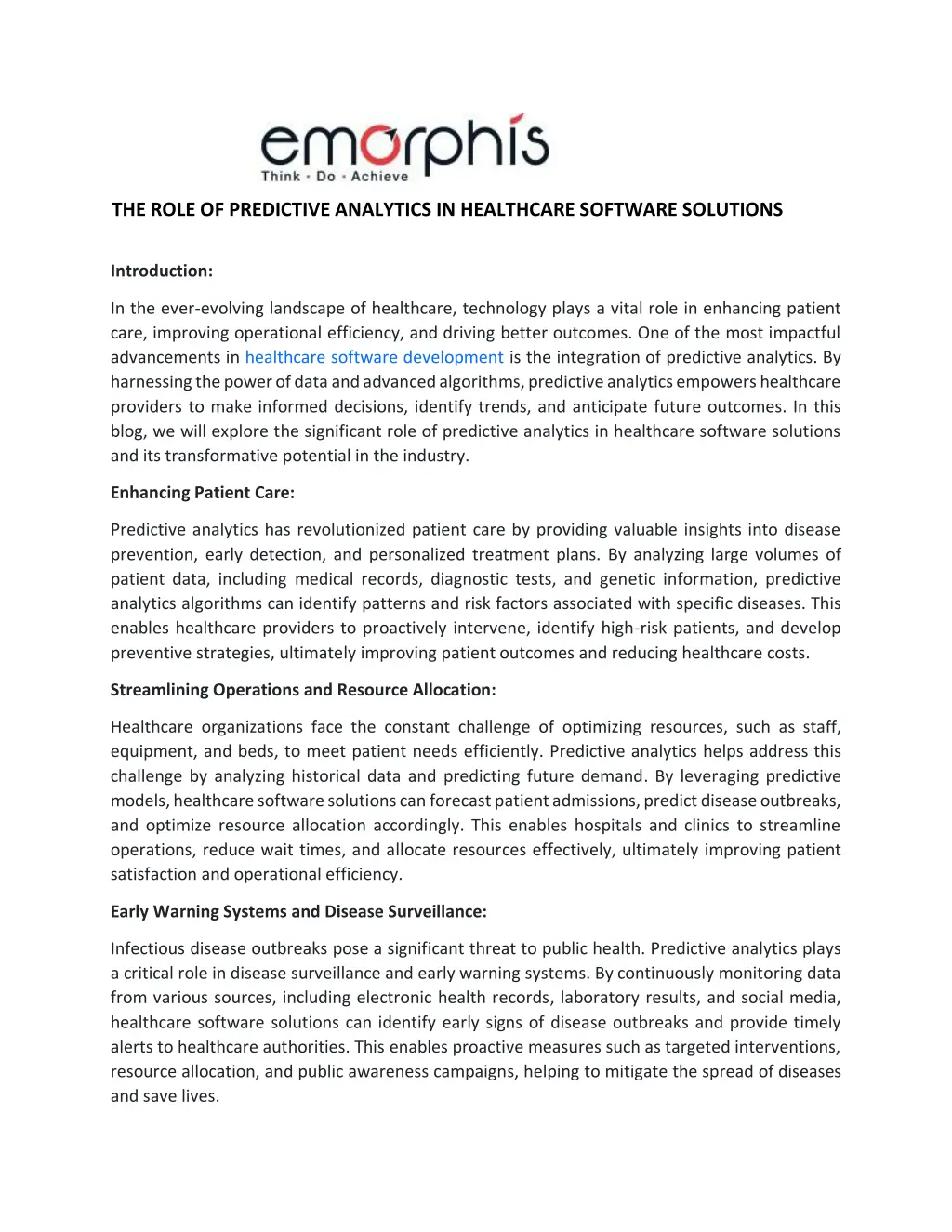
THE ROLE OF PREDICTIVE ANALYTICS IN HEALTHCARE SOFTWARE SOLU
In the ever-evolving landscape of healthcare, technology plays a vital role in enhancing patient care, improving operational efficiency, and driving better outcomes. One of the most impactful advancements in healthcare software development is the integration of predictive analytics.
Download Presentation

Please find below an Image/Link to download the presentation.
The content on the website is provided AS IS for your information and personal use only. It may not be sold, licensed, or shared on other websites without obtaining consent from the author. If you encounter any issues during the download, it is possible that the publisher has removed the file from their server.
You are allowed to download the files provided on this website for personal or commercial use, subject to the condition that they are used lawfully. All files are the property of their respective owners.
The content on the website is provided AS IS for your information and personal use only. It may not be sold, licensed, or shared on other websites without obtaining consent from the author.
E N D
Presentation Transcript
THE ROLE OF PREDICTIVE ANALYTICS IN HEALTHCARE SOFTWARE SOLUTIONS Introduction: In the ever-evolving landscape of healthcare, technology plays a vital role in enhancing patient care, improving operational efficiency, and driving better outcomes. One of the most impactful advancements in healthcare software development is the integration of predictive analytics. By harnessing the power of data and advanced algorithms, predictive analytics empowers healthcare providers to make informed decisions, identify trends, and anticipate future outcomes. In this blog, we will explore the significant role of predictive analytics in healthcare software solutions and its transformative potential in the industry. Enhancing Patient Care: Predictive analytics has revolutionized patient care by providing valuable insights into disease prevention, early detection, and personalized treatment plans. By analyzing large volumes of patient data, including medical records, diagnostic tests, and genetic information, predictive analytics algorithms can identify patterns and risk factors associated with specific diseases. This enables healthcare providers to proactively intervene, identify high-risk patients, and develop preventive strategies, ultimately improving patient outcomes and reducing healthcare costs. Streamlining Operations and Resource Allocation: Healthcare organizations face the constant challenge of optimizing resources, such as staff, equipment, and beds, to meet patient needs efficiently. Predictive analytics helps address this challenge by analyzing historical data and predicting future demand. By leveraging predictive models, healthcare software solutions can forecast patient admissions, predict disease outbreaks, and optimize resource allocation accordingly. This enables hospitals and clinics to streamline operations, reduce wait times, and allocate resources effectively, ultimately improving patient satisfaction and operational efficiency. Early Warning Systems and Disease Surveillance: Infectious disease outbreaks pose a significant threat to public health. Predictive analytics plays a critical role in disease surveillance and early warning systems. By continuously monitoring data from various sources, including electronic health records, laboratory results, and social media, healthcare software solutions can identify early signs of disease outbreaks and provide timely alerts to healthcare authorities. This enables proactive measures such as targeted interventions, resource allocation, and public awareness campaigns, helping to mitigate the spread of diseases and save lives.
Risk Stratification and Population Health Management: Population health management is a key focus in modern healthcare, aiming to improve the health outcomes of specific groups of individuals. Predictive analytics enables risk stratification, where healthcare software solutions identify patients at high risk for certain conditions, such as chronic diseases or readmissions. By analyzing data on patient demographics, medical history, and social determinants of health, predictive analytics algorithms can identify individuals who would benefit most from targeted interventions and preventive care programs. This proactive approach not only improves patient health but also reduces healthcare costs associated with avoidable hospitalizations and emergency room visits. Clinical Decision Support: Clinical decision support systems powered by predictive analytics provide healthcare it consulting software with real-time insights and evidence-based recommendations. By integrating patient- specific data with clinical guidelines and research findings, these software solutions can assist physicians in making accurate diagnoses, choosing appropriate treatment plans, and predicting patient outcomes. The use of predictive analytics in clinical decision support enhances the quality of care, reduces medical errors, and improves patient safety. Conclusion: Predictive analytics is a game-changer in healthcare software development, revolutionizing patient care, operational efficiency, and public health. By leveraging data-driven insights, healthcare providers can make proactive, informed decisions, resulting in improved patient outcomes, reduced costs, and enhanced overall healthcare delivery. As the healthcare industry continues to embrace digital transformation, the integration of predictive analytics in software solutions will play an increasingly vital role in shaping the future of healthcare, leading to better health outcomes for individuals and populations alike.


